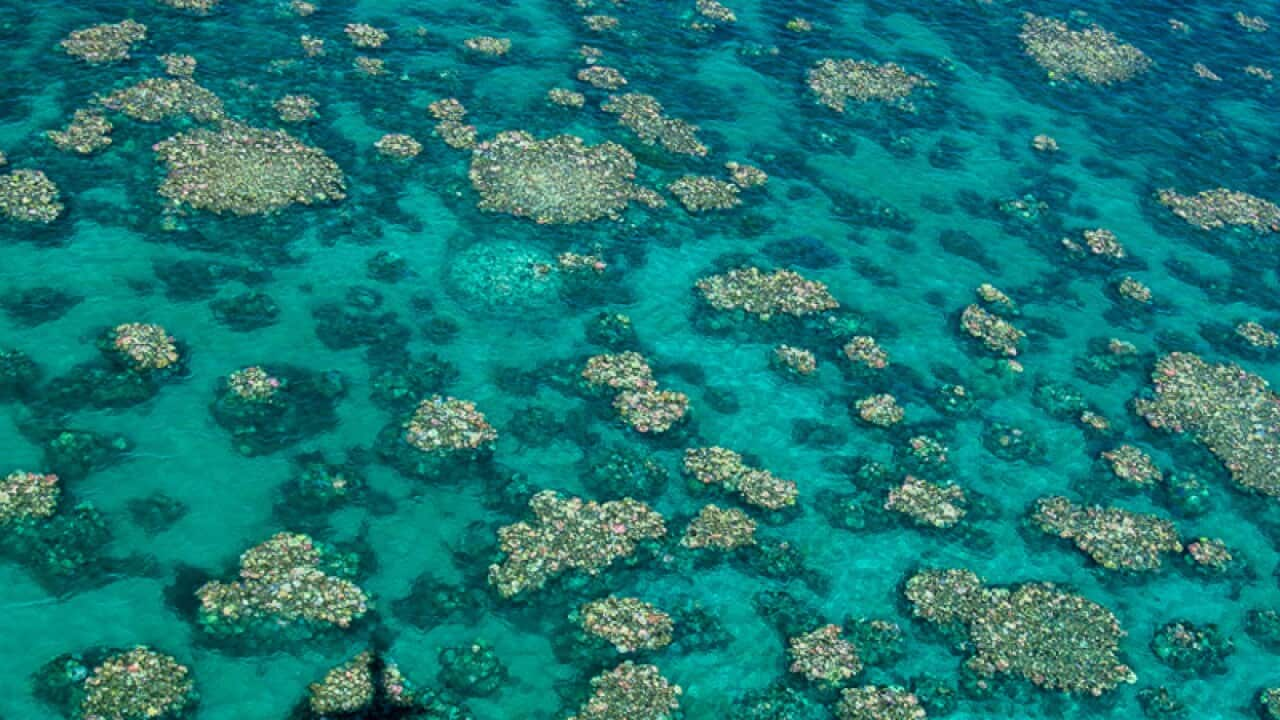Aerial surveys that show mass coral bleaching has impacted most of the Great Barrier Reef will be used to help save it.
The Australian Research Council's Centre of Excellence for Coral Reef Studies confirmed on Monday only the southern third of the reef had not been affected by consecutive bleaching events in 2016 and 2017.
Great Barrier Reef Marine Park Authority chairman Russell Reichelt said survey results would be used to "refine a support strategy" to help improve the health of the ecosystem.
Mr Reichelt said the reef had suffered a second straight year of mass coral bleaching, largely due to ocean warming.
"In addition, the impacts of recent severe Tropical Cyclone Debbie, and resulting flooding in the catchment, have placed greater pressure on the reef potentially adding to coral loss," he said in a statement.
Centre of Excellence for Coral Reef Studies' marine biologist James Kerry said the reef was not necessarily dead but it would take at least 10 years for "even the fastest growing corals" to recover.
"So mass bleaching events 12 months apart offers zero prospect of recovery for reefs that were damaged in 2016," he said.
Dr Reichelt said the aerial surveys showed the 2017 bleaching occurred further south than the year before, but also that it was patchy and some coral was "largely unaffected".
"These reefs will help seed recovery. Bleaching is not the equivalent of a death knell," he said.
"Reefs and individual coral colonies do have the ability to recover, depending on the severity of the bleaching and whether other pressures are reduced."
Dr Reichelt said GBRMPA would continue to improve the resilience of the reef, but the international community needed to implement the Paris Agreement to reduce greenhouse gas emissions.
State Opposition Leader Tim Nicholls said it was crucial that people understood there were plenty of parts of the reef that hadn't been impacted by bleaching.
"We need to protect the Great Barrier Reef, because it is one of the great tourism destinations of Queensland," he said.
"But the other thing we need to make sure is we don't scare people away by saying there's nothing to see."

